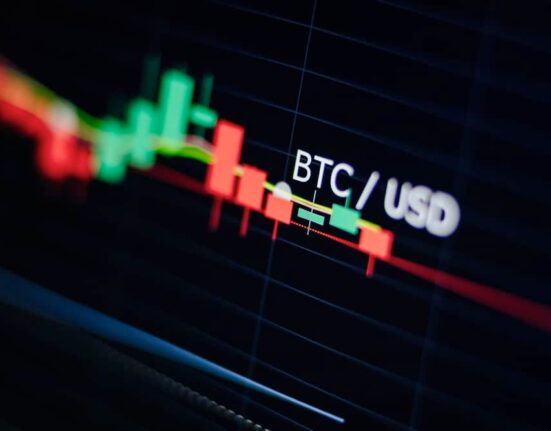As the CMB continues to update the list and companies work to meet regulatory requirements, the Turkish crypto market is poised for significant changes.
It looks like Coinbase, KuCoin, and other major cryptocurrency exchanges are seeking licenses to operate in Turkey. This move reflects the growing interest and potential of the Turkish crypto market. By securing a license, these platforms would be able to offer their services more securely and legally in Turkey, which has become an increasingly attractive market due to its large population and the rising adoption of cryptocurrencies.
For Turkey, this also means more regulatory oversight and potentially greater consumer protection in the crypto space. It’s a significant development that underscores the global nature of the cryptocurrency industry and the diverse regulatory environments companies must navigate. Are you following the crypto industry closely or just interested in how it’s evolving in different regions?
Background
Turkey has seen a surge in cryptocurrency interest and adoption in recent years, driven by factors such as economic instability, high inflation, and a tech-savvy population. The Turkish lira’s depreciation has also made cryptocurrencies an appealing hedge against currency fluctuations.
Regulatory Environment
The Turkish government has been gradually working on establishing a clearer regulatory framework for cryptocurrencies. The Capital Markets Board of Turkey (CMB) and other regulatory bodies are involved in creating rules and guidelines to manage and oversee crypto activities. In 2021, Turkey’s central bank banned the use of cryptocurrencies for payments, but trading and investment remain legal and popular.
Licensing Moves
Exchanges like Coinbase and KuCoin are applying for licenses to operate legally in Turkey. This step indicates several things:
- Compliance: The exchanges are looking to align with Turkish regulations, which may include anti-money laundering (AML) and know-your-customer (KYC) requirements.
- Market Access: A license will provide a legal framework for these exchanges to offer their services to Turkish users, which could increase their customer base and market share.
- Consumer Protection: Regulatory oversight aims to protect users from potential fraud and other risks associated with cryptocurrency trading.
Implications for the Market
- Increased Credibility: Licensed exchanges are likely to gain more trust from Turkish users, who may be more inclined to trade on platforms that are regulated.
- Competition: As more exchanges enter the market, it could lead to increased competition, which might result in better services and lower fees for users.
- Regulatory Clarity: The presence of well-known international exchanges may encourage the Turkish government to finalize and possibly improve its regulatory framework for cryptocurrencies.
Challenges
- Regulatory Compliance: Navigating different countries’ regulations can be complex, and exchanges need to adapt their operations to comply with local laws.
- Market Dynamics: The crypto market is highly volatile, and the regulatory environment can shift rapidly, affecting business operations and market strategies.
Overall, the move by major exchanges to secure licenses in Turkey reflects the country’s growing importance in the global cryptocurrency landscape and the broader trend of integrating digital assets into established financial systems.
Turkish Crypto Market Overview
1. Market Size and Growth
- Popularity: Turkey has a vibrant crypto community, with a significant number of individuals engaging in cryptocurrency trading and investment. According to recent reports, Turkey ranks among the top countries globally in terms of cryptocurrency adoption.
- Economic Context: Economic instability, high inflation, and currency devaluation have driven many Turks to seek alternative financial assets like cryptocurrencies.
2. Regulatory Landscape
- Central Bank Regulations: In April 2021, the Central Bank of Turkey imposed a ban on the use of cryptocurrencies for payments, citing concerns about transaction security and the potential for illicit activities. This ban does not affect trading and investment in cryptocurrencies.
- Capital Markets Board (CMB): The CMB has been working on regulatory guidelines to address the growing crypto market, aiming to ensure consumer protection, prevent financial crimes, and bring transparency to crypto operations.
- Taxation and Reporting: There are ongoing discussions about tax regulations and reporting requirements for crypto transactions, though specific rules may still be under development.
Major Exchanges Seeking Licenses
1. Coinbase
- Global Reach: As one of the largest and most established cryptocurrency exchanges in the world, Coinbase is known for its user-friendly platform and strong regulatory compliance in various jurisdictions.
- License Application: Coinbase’s move to apply for a license in Turkey signifies its commitment to expanding its services in emerging markets and aligning with local regulations to build trust with Turkish users.
2. KuCoin
- Market Position: KuCoin is a major global exchange with a reputation for offering a wide range of cryptocurrencies and trading pairs. It is known for its innovative features and competitive fees.
- License Application: By seeking a license in Turkey, KuCoin aims to capitalize on the growing interest in crypto within the country and to provide a regulated and secure trading environment for Turkish investors.
3. Other Exchanges
- Binance: Binance, another major player, has already made inroads into the Turkish market and is working to comply with local regulations.
- Bitfinex and Kraken: Other exchanges are also eyeing the Turkish market, contributing to the competitive landscape and driving regulatory engagement.
Implications of Licensing
1. Market Access and Expansion
- Broader User Base: Licensing will allow these exchanges to operate legally and attract more users who prefer regulated platforms.
- Enhanced Services: Licensed exchanges are likely to introduce localized services, including customer support in Turkish, payment methods tailored to Turkish users, and educational resources on crypto trading.
2. Regulatory Compliance
- AML and KYC: Compliance with anti-money laundering (AML) and know-your-customer (KYC) regulations will be crucial for these exchanges. They will need to implement robust systems for verifying user identities and monitoring transactions.
- Consumer Protection: Regulatory oversight will help protect consumers from fraud and ensure that exchanges adhere to standards of transparency and security.
3. Competitive Dynamics
- Increased Competition: The entry of multiple major exchanges could lead to improved services, competitive fees, and more innovative offerings in the Turkish market.
- Regulatory Pressure: The presence of global players might push local regulators to finalize and potentially enhance their crypto regulatory framework.
Challenges
1. Regulatory Uncertainty
- Evolving Regulations: The regulatory environment for cryptocurrencies is still evolving in Turkey, and exchanges will need to stay adaptable to changes and new requirements.
- Compliance Costs: Meeting regulatory standards may involve significant costs related to technology, compliance personnel, and legal support.
2. Market Volatility
- Risk Management: Exchanges will need to manage the risks associated with the high volatility of the cryptocurrency market, which can impact trading volumes and profitability.
In summary, the application for licenses by major exchanges like Coinbase and KuCoin represents a strategic move to tap into Turkey’s burgeoning cryptocurrency market. It also highlights the importance of regulatory compliance in fostering a secure and trustworthy environment for digital asset trading.

FAQ: Cryptocurrency Exchanges and Licensing in Turkey
1. Why are cryptocurrency exchanges seeking licenses in Turkey?
- Legal Operation: Obtaining a license allows exchanges to operate legally within Turkey, adhering to local regulations and providing a secure environment for users.
- Market Expansion: Turkey has a growing crypto market, and a license enables exchanges to tap into this market and attract more Turkish users.
- Trust and Compliance: Licensing can increase trust among users by ensuring that the exchange complies with local regulatory requirements, including anti-money laundering (AML) and know-your-customer (KYC) practices.
2. Which cryptocurrency exchanges are applying for licenses in Turkey?
- Coinbase: One of the largest and most well-known exchanges globally, seeking to expand its presence in Turkey.
- KuCoin: A major global exchange known for its wide range of cryptocurrencies and trading pairs.
- Other Exchanges: Other notable exchanges like Binance and Kraken are also working on regulatory compliance and expanding their services in Turkey.
3. What are the regulatory requirements for obtaining a crypto license in Turkey?
- AML and KYC Compliance: Exchanges must implement robust systems to verify user identities and monitor transactions to prevent money laundering and financial crimes.
- Consumer Protection: Ensuring transparency in operations and providing adequate measures to protect users from fraud and other risks.
- Reporting and Taxation: Adhering to local reporting requirements and tax regulations related to cryptocurrency transactions.
4. How will licensing affect users in Turkey?
- Increased Security: Users can expect higher security standards and better protection against fraud.
- Enhanced Services: Licensed exchanges may offer localized services, such as Turkish language support and payment methods tailored to local preferences.
- Trust and Confidence: Users may feel more confident using platforms that are regulated and compliant with local laws.
5. What are the benefits for exchanges of obtaining a license in Turkey?
- Legal Operation: Being licensed allows exchanges to operate legally, avoiding potential legal issues and penalties.
- Market Access: Gaining access to a large and growing market of crypto enthusiasts and investors in Turkey.
- Competitive Advantage: Licensed exchanges may gain a competitive edge over unlicensed platforms by offering a regulated and secure trading environment.
6. Are there any challenges associated with obtaining a crypto license in Turkey?
- Regulatory Compliance: Exchanges need to navigate complex and evolving regulations, which can be costly and time-consuming.
- Market Volatility: The volatile nature of the cryptocurrency market can impact trading volumes and profitability, requiring exchanges to manage these risks effectively.
- Regulatory Uncertainty: Ongoing changes and updates in regulations may pose challenges for exchanges trying to stay compliant.
7. How does the licensing process work?
- Application Submission: Exchanges must submit a detailed application to the relevant regulatory authorities, such as the Capital Markets Board (CMB) or other financial regulators.
- Review and Approval: The application is reviewed to ensure compliance with all regulatory requirements. This process may involve background checks, financial audits, and technical assessments.
- Issuance of License: Upon successful review, the regulatory authority issues a license, allowing the exchange to operate legally within Turkey.
8. What impact does this licensing have on the broader cryptocurrency market?
- Increased Legitimacy: As more exchanges obtain licenses, the overall legitimacy and acceptance of cryptocurrencies may improve.
- Regulatory Precedents: Turkey’s approach to crypto regulation could influence other countries and contribute to global regulatory trends.
- Market Dynamics: Licensing may lead to increased competition among exchanges, potentially resulting in better services and lower fees for users.
9. Where can I find more information about cryptocurrency regulation in Turkey?
- Official Websites: Check the websites of Turkish regulatory bodies like the Capital Markets Board (CMB) and the Central Bank of Turkey for official updates and guidelines.
- Exchange Announcements: Major exchanges often provide updates and information about their licensing status and regulatory compliance on their websites and through press releases.
- News Outlets: Financial and crypto news outlets frequently cover developments in cryptocurrency regulation and market trends.

Advantages
1. Regulatory Compliance:
- Legal Operation: Obtaining a license ensures that exchanges operate within the legal framework of Turkey, avoiding potential legal issues and fines.
- Regulatory Standards: Complying with local regulations such as AML (Anti-Money Laundering) and KYC (Know Your Customer) helps create a safer trading environment and reduces the risk of financial crimes.
2. Increased Market Access:
- Expanded User Base: A license allows exchanges to tap into the growing Turkish crypto market, potentially increasing their user base and trading volumes.
- Local Market Presence: Being licensed enables exchanges to offer localized services, including Turkish language support and local payment methods.
3. Enhanced Credibility and Trust:
- Consumer Confidence: Users are more likely to trust and use exchanges that are regulated and licensed, as this provides assurance of adherence to local laws and standards.
- Brand Reputation: Gaining a license can enhance the exchange’s reputation as a legitimate and reliable platform in the eyes of both users and regulators.
4. Operational Stability:
- Legal Protection: Operating under a license provides a clear legal standing, which can help protect the exchange from arbitrary shutdowns or legal challenges.
- Market Stability: Regulatory oversight can contribute to a more stable and predictable market environment, benefiting both users and exchanges.
5. Competitive Advantage:
- Differentiation: Being licensed can differentiate exchanges from unregulated competitors, offering a competitive edge in attracting users who prioritize regulatory compliance.
Disadvantages
1. Compliance Costs:
- Operational Expenses: Meeting regulatory requirements involves significant costs related to compliance systems, legal fees, and ongoing reporting obligations.
- Resource Allocation: Exchanges may need to allocate substantial resources to ensure adherence to local regulations, potentially diverting attention from other strategic initiatives.
2. Regulatory Uncertainty:
- Evolving Regulations: The regulatory environment for cryptocurrencies is still developing, and exchanges may face uncertainty and frequent changes in regulations.
- Adaptation Challenges: Staying compliant with evolving rules can be challenging and may require constant adjustments to operational procedures.

3. Market Volatility:
- Risk Management: The high volatility of the cryptocurrency market can impact trading volumes and profitability, making it challenging for exchanges to manage risk and maintain stable operations.
- Revenue Fluctuations: Market fluctuations can affect the revenue streams of exchanges, potentially impacting their financial stability.
4. Administrative Burden:
- Regulatory Reporting: Exchanges must handle extensive reporting and documentation requirements to meet regulatory standards, which can be administratively burdensome.
- Monitoring and Audits: Regular monitoring and audits by regulatory authorities can add complexity to the operational processes of exchanges.
5. Competitive Pressure:
- Increased Competition: The entry of multiple licensed exchanges can intensify competition, potentially leading to lower fees and reduced profit margins.
- Market Saturation: A surge in licensed exchanges might lead to market saturation, making it harder for individual exchanges to stand out and achieve significant market share.
In summary, while obtaining a license in Turkey provides significant benefits, including legal operation, increased credibility, and market access, it also comes with challenges such as compliance costs, regulatory uncertainty, and increased competition. Exchanges need to weigh these factors carefully as they navigate the licensing process and plan their market strategies.
Impact on the Regulatory Environment
1. Increased Regulatory Clarity:
- Standardization: Licensing introduces clear guidelines and standards, helping to formalize the cryptocurrency industry within Turkey and reduce regulatory ambiguity.
- Consumer Protection: Enhanced regulatory frameworks can improve consumer protection by setting requirements for transparency, security, and compliance.
2. Stronger Enforcement:
- Compliance Monitoring: Licensed exchanges are subject to regular audits and compliance checks, which can lead to more effective enforcement of regulations and prevention of illicit activities.
- Regulatory Precedents: Turkey’s approach to crypto regulation may set a precedent for other countries, influencing global regulatory trends and practices.
3. Development of a Regulatory Framework:
- Ongoing Adjustments: As the crypto market evolves, regulators may refine and update their frameworks to address new challenges and opportunities, impacting how exchanges operate.
Impact on the Market
1. Market Expansion:
- Increased Participation: Licensing can attract more users to the market, including institutional investors and individuals who prefer regulated environments.
- Growth Opportunities: Exchanges can leverage the licensing to explore new business opportunities and expand their services within Turkey.
2. Competitive Dynamics:
- Enhanced Competition: The entry of multiple licensed exchanges can lead to increased competition, potentially resulting in better services, lower fees, and innovative features for users.
- Market Saturation: An influx of licensed exchanges may lead to market saturation, impacting individual exchanges’ market share and profitability.
3. Market Stability:
- Reduced Risks: A regulated environment can contribute to greater market stability by setting standards for operations and reducing the potential for fraudulent activities.
- Investor Confidence: Regulatory oversight can enhance investor confidence, leading to more stable market conditions and potentially increased investment in cryptocurrencies.
Impact on Users
1. Enhanced Security and Trust:
- Regulated Platforms: Users may feel more secure using platforms that are licensed and regulated, knowing that these platforms adhere to local laws and standards.
- Improved Services: Licensed exchanges are likely to offer higher levels of customer support, transparency, and reliability, contributing to a better overall user experience.
2. Access to Localized Services:
- Language and Payment Options: Exchanges that are licensed can provide services tailored to the local market, such as Turkish language support and payment methods specific to Turkish users.
- Educational Resources: Users might benefit from localized educational resources and tools designed to help them navigate the cryptocurrency space.
3. Potential Costs and Fees:
- Regulatory Costs: The costs associated with licensing and compliance might be passed on to users in the form of higher fees or charges.
- Service Variability: As more exchanges enter the market, the quality and range of services offered may vary, affecting user choice and satisfaction.

Impact on Exchanges
1. Operational Adjustments:
- Compliance Requirements: Exchanges will need to adapt their operations to meet regulatory requirements, including implementing robust AML and KYC procedures.
- Resource Allocation: Significant resources may be required to ensure compliance, which can impact other areas of business development and innovation.
2. Strategic Opportunities:
- Market Penetration: A license can open up new market opportunities and partnerships within Turkey, potentially leading to strategic alliances and business growth.
- Brand Enhancement: Gaining a license can enhance the exchange’s brand reputation and credibility in the eyes of investors and users.
3. Risk Management:
- Regulatory Risks: Exchanges will need to manage risks associated with regulatory changes and compliance, which can impact operational stability and financial performance.
- Market Volatility: Exchanges must continue to navigate the inherent volatility of the cryptocurrency market, balancing regulatory compliance with market demands.
In summary, the impact of cryptocurrency exchanges seeking licenses in Turkey is multifaceted, influencing regulatory clarity, market dynamics, user experience, and operational strategies. While licensing provides opportunities for growth and increased trust, it also introduces challenges related to compliance, competition, and market stability.





Leave feedback about this